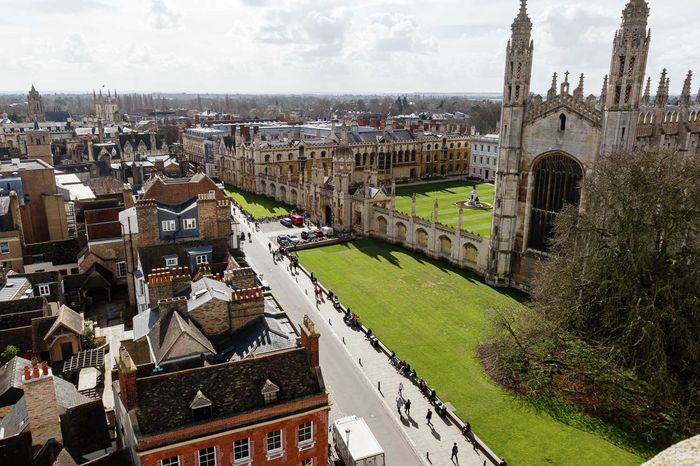Cambridge Alumnus Sir Roger Penrose wins 2020 Nobel Prize in Physics
Penrose won the Prize, alongside Reinhard Genzel and Andrea Ghez, for his work on black holes

Sir Roger Penrose, an Honorary Fellow of St John’s College Cambridge has won the 2020 Novel Prize in Physics, alongside Reinhard Genzel and Andrea Ghez, for “the discovery that black hole formation is a robust prediction of the general theory of relativity”.
Sir Roger Penrose, who is currently an Emeritus Rouse Ball Professor of Mathematics at the University of Oxford, has become the 110th person affiliated with the University of Cambridge to be awarded the Nobel Prize since 1904, and the 34th winner in the field of Physics.
The Royal Swedish Academy of Sciences announced the winners in a press release on 6th October, saying that 'Penrose used ingenious mathematical methods in his proof that black holes are a direct consequence of Albert Einstein’s general theory of relativity.’
Penrose came to Cambridge in 1952 as a PhD student at St John’s. He completed his thesis in 1957, writing on tensor methods in algebraic geometry, and remained at the College for a further three years as a Research Fellow. This win makes him the College’s tenth Nobel prize-winner, and the sixth in Physics.
Heather Hancock, current Master of St John’s, speaking to Varsity, said “we are delighted to see Sir Roger Penrose receive the recognition and accolade of the Nobel Prize for his outstanding contribution to physics. His ground-breaking proof of the formation of black holes is a landmark contribution to the application of Einstein’s general theory of relativity. We offer our warmest congratulations to Roger.”
In his “groundbreaking” 1965 paper, "Gravitational Collapse and Space-Time Singularities", Penrose proved that black holes could actually exist, and described them in detail. This publication is regarded as the most important contribution to the general theory of relativity since Einstein.
In the 1970s, Penrose collaborated with the late Stephen Hawking to formulate the Penrose–Hawking singularity theorems. In 1988, they shared the Wolf Foundation Prize for Physics for their theories.
Penrose shares this year’s Nobel Prize for Physics with Reinhard Genzel and Andrea Ghez, who have been recognised for “develop[ing] methods to see through the huge clouds of interstellar gas and dust to the centre of the Milky Way” which has “given us the most convincing evidence yet of a supermassive black hole at the centre of the Milky Way.”
The winners will each receive a share of the prize money (10 million Swedish kronor), with Penrose receiving one half of the total (equivalent to £800,000).
Professor Martin Rees, Astronomer Royal and Fellow of Trinity College, University of Cambridge told Varsity that “Penrose is amazingly original and inventive, and has contributed creative insights for more than 60 years. There would, I think, be a consensus that Penrose and Hawking are the two individuals who have done more than anyone else since Einstein to deepen our knowledge of gravity. Sadly, this award was too much delayed to allow Hawking to share the credit with Penrose”.
 Music / The pipes are calling: the life of a Cambridge Organ Scholar25 April 2025
Music / The pipes are calling: the life of a Cambridge Organ Scholar25 April 2025 Arts / Plays and playing truant: Stephen Fry’s Cambridge25 April 2025
Arts / Plays and playing truant: Stephen Fry’s Cambridge25 April 2025 Comment / Cambridge builds up the housing crisis25 April 2025
Comment / Cambridge builds up the housing crisis25 April 2025 Interviews / Dr Ally Louks on going viral for all the wrong reasons25 April 2025
Interviews / Dr Ally Louks on going viral for all the wrong reasons25 April 2025 News / Candidates clash over Chancellorship25 April 2025
News / Candidates clash over Chancellorship25 April 2025






